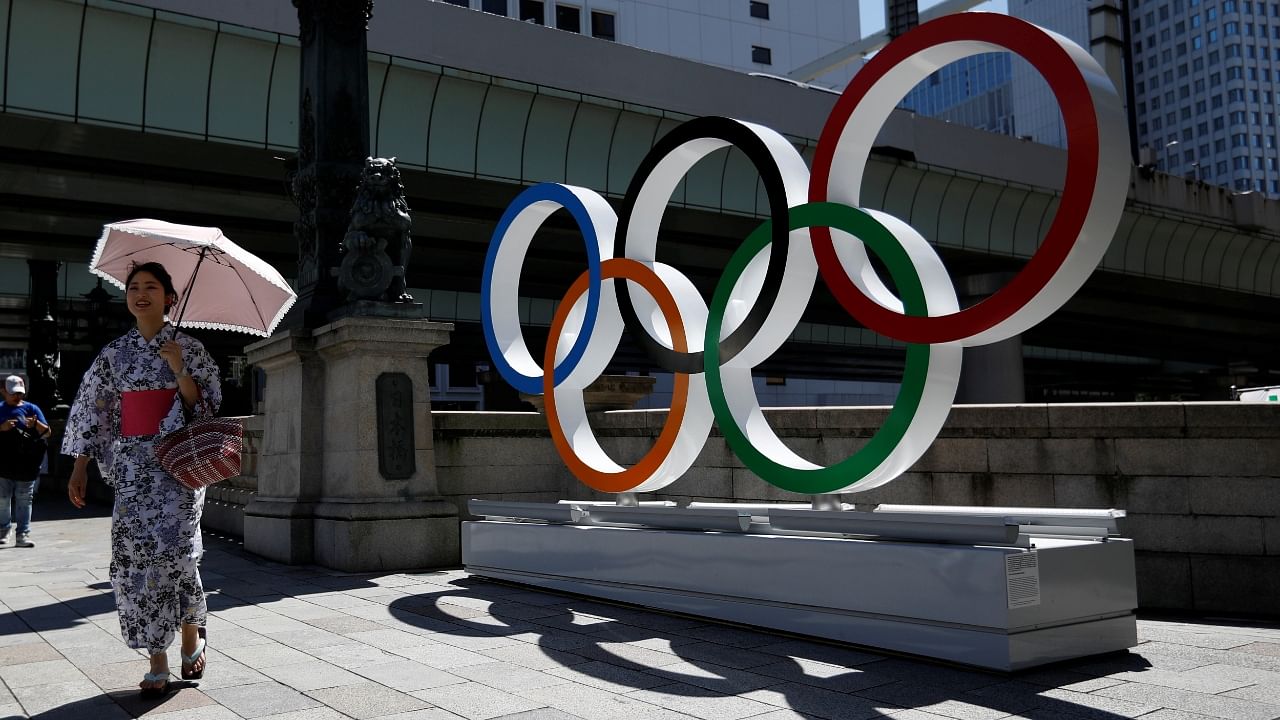
Japan's biggest advertising agency and five other companies were indicted on Tuesday for allegedly violating an anti-monopoly law, in a corruption scandal over bid-rigging during the Tokyo Olympics.
The indictment followed the arrest this month of a senior Tokyo 2020 organising committee official and three others who were accused of rigging a string of Olympic Games-related tenders.
Dentsu Group president Hiroshi Igarashi has admitted to Tokyo prosecutors that his firm is liable, according to local media.
Prosecutors unveiled charges against the company as well as leading advertising firms Hakuhodo and Tokyu Agency, and events operators Same Two, Cerespo and Fuji Creative Corp.
Seven company executives and officials were also named in the indictment, which did not specify who worked for which firm.
The firms and executives "colluded to restrict each other's business activity with regard to the awarding of contracts" for Olympic test events, a statement from prosecutors said.
Their actions "went against the public interest and effectively restricted competition".
Dentsu Group said it took "the situation very seriously, and we sincerely apologise for the trouble" caused by the scandal.
The company added that it has established an external committee of experts to probe the case and requested salary returns from five of its current and former officials.
Tokyo prosecutors arrested former 2020 Games official Yasuo Mori this month for allegedly violating the anti-monopoly law, along with three other businessmen.
The four allegedly rigged a string of open competitive bids and limited tender contracts for Olympic events, reportedly worth a total of 40 billion yen ($300 million).
Prosecutors are also investigating claims a former Tokyo 2020 board member took money from companies in exchange for Olympic partnership deals.
Haruyuki Takahashi was arrested for allegedly pocketing bribes that reportedly amounted to nearly 200 million yen.
Companies implicated in the bribery cases include a suit retailer, a publishing firm and a merchandise company licensed to sell soft toys of the Games' mascots.
The former president of ADK Holdings, Japan's third-largest advertising agency, has pleaded guilty to offering Takahashi at least 14 million yen.
In December, a former executive from major clothing company Aoki Holdings also admitted in court that he offered money to secure sponsorship rights, according to national broadcaster NHK.
The cases have cast a shadow over Sapporo's bid for the 2030 Winter Games, prompting the northern city to halt its campaign and organise a nationwide poll to assess support.
"It would be truly regrettable if there were unfair activities in bidding linked to the Tokyo Games," top government spokesman Hirokazu Matsuno told reporters on Tuesday as reports of the new indictments emerged.
Questions had been raised over impropriety around the Tokyo Games even before the Covid-disrupted event took place in summer 2021.
The former head of Japan's Olympic Committee, Tsunekazu Takeda, stepped down in 2019 after French prosecutors launched an investigation into corruption allegations linked to Tokyo's Olympic bid.